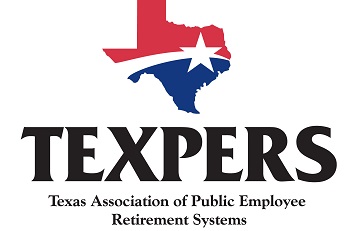Advisory Committee moves closer to designing
new principles for benefit design
by Joe Gimenez
Contributor
The Pension Review Board’s newest committee continued etching guidelines on how plans should design their benefits for members.
The advisory committee on “Principles of Retirement Plan Design” met March 1 to refine and adjust guidelines first discussed in October. At that meeting, committee members – PRB chairman Josh McGee, Vice Chair Keith Brainard, and Stephanie Leibe – focused primarily on broad guidelines for plans’ and sponsor relationships with employees. They arrived at conclusions such as “participation in plans should be mandatory” and “plans should provide a benefit that cannot be outlived.”
At the meeting, advisory committee members spent more time and energy discussing the relationship of benefits to governmental entities’ ability to pay them. In addition, Leibe asked the board to consider that some of the principles they discussed were not aligned with current laws. Brainard and McGee countered that the recommendations should be viewed as offering guidance to future public policy, or “how things ought to be.”
David Stacy, a TEXPERS Board member and trustee with Midland Firemen’s Relief and Retirement Fund, told the Board he did not think the committee should peg its recommendation for vesting periods to ERISA laws for private sector employees. The committee had agreed on the principle that “Vesting should be brief and should occur over a period not to exceed five years.” Stacy advocated for the longer-term vesting periods intended to keep public employees on the job for at least a decade. McGee countered by saying that shorter vesting periods work in favor of creating retirement security for people. Brainard said that plan design is a matter of balance, like retaining employees but also not sending employees off on their own with nothing to show for the time they spent on a job. McGee also contended that research shows there is no impact on pension systems by offering shorter vesting periods.
The advisory committee is slated to meet again on April 24 at which time staff will provide a revised version of the preamble and principles. The committee will consider public comment before and at the meeting. Ultimately, the advisory committee hopes to approve staff work and recommend the guidelines for adoption by the full Pension Review Board at its June meeting.
Here are some of the benefit principles being proposed by the advisory committee.
- Public employers should offer a retirement benefit
- Participation in the employer-sponsored primary plan should be mandatory
- Contributions should be made in a manner consistent with PRB Pension Funding Guidelines.
- Contributions should be adequate to the benefits being promised, no matter who is making the contributions.
- Assets should be pooled, professionally invested and in a manner that minimizes costs.
- Assets should be diversified and invested in a manner consistent with prudent investor standards.
- Vesting should be brief and should occur over a period not to exceed five years.
- A portion of retirement benefits should be mandated to be annuitized.
- Access to loans, lump sums, or anything resembling ‘leakage’ of retirement assets before retirement, should be discouraged or minimized, with the exception of very severe individual circumstances.
- Annuities should be protected against inflation and paid for in advance.
- With regard to governance, language should mention stakeholders, transparency, and accountability and includes a cost element.
- Sponsor-supplemented savings should be encouraged.
Author Bio: Joe Gimenez is a business management and communications counselor to business unit directors for Fortune 500 companies and public employee pension funds for the past 20 years. His clients include TEXPERS, San Antonio Fire and Police Pension Fund, Houston Firefighters’ Relief and Retirement Fund, Microsoft, Capgemini, Dell, Eli Lilly, and others. He has a Master’s degree from George Mason University in International Trade and Transactions.
x

No comments:
Post a Comment